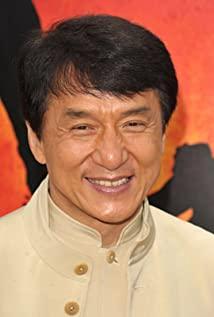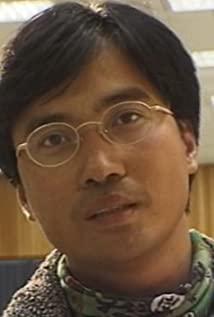Hou Jie, who used to be a powerful man and then escaped into Shaolin after his family was destroyed, died in the palm of the peaceful Buddha after exchanging his life for Cao Man's repentance. He finally cleared his grievances and hatred and became a positive result.
The drizzle fell from the sky and fell on the Buddha's face, turning into tears of compassion; the melodious and far-reaching Buddhist music slowly floated from the ethereal, shaking my heartstrings.
When I walked out of the cinema, my heart finally got rid of the haze of the past week and a half, and suddenly began to be unusually calm.
About Zen
What is Zen? Having read various books on Chinese culture, I have never been able to think of a way to even describe what Zen is.
Recently, I have been listening to a friend talking about what she heard when she was in Myanmar. Meditation can be used to gain all kinds of inner peace. Whenever words like enlightenment and meditation are mentioned in the film, the English translation is also meditation.
Maybe human nature is really good; maybe simply put, the ultimate goal of meditation is to get rid of the troubles of life, to find the true self, and to realize Zen. If this is the case, isn't meditation and meditation what human beings need most in the current world?
However, cultivating Zen and enlightenment cannot only be acquired by studying the scriptures and meditating in such a quiet way. Just like meditation, there is also walking meditation.
Shaolin's Zen Buddhism has been pursuing Zen martial arts for thousands of years. However, there is no concentrated explanation of Zen and enlightenment in the film; however, in my opinion, just like Buddhist scriptures and Zen scriptures, the film's explanation of Zen is also interspersed and hidden in everyone's stories:
At the beginning, Hou Jie was arrogant, unscrupulous, and ignored the preciousness of life; later, under Cao Man's careful planning, his daughter died tragically, his wife was far away, and he escaped into Shaolin Buddhism; Realizing one's own big mistake is for Zen.
Shaolin disciples follow the Buddhadharma, help others to do good deeds, and use martial arts to aid their cultivation. They can even accept the enemy Hou Jie and help him get out of the sea of misery as soon as possible. At critical moments, they acted chivalrously and used warlord food and salaries to help refugees. Sacrificing one's own life to fight against warlords and protect toiled beings is for Zen.
The abbot has been compassionate and educated all his disciples throughout his life. At a critical moment, he stepped forward to fight dozens of soldiers alone, blocking them at the back door of Shaolin, and buying time for the people to evacuate first. When the abbot died in battle, he folded his hands and knelt on the ground. The phrase Amitabha Buddha escaped into the Western Heaven is for Zen.
Hou Jie exchanged his life for Cao Man's awakening and died peacefully in the palm of Buddha's hands. Proud, collapsed in an instant, is also Zen.
The characters in the movie perform their responsibilities and seek meditation in various ways in the extreme chaos, just like the practice methods that Shaolin Temple has always pursued:
Zen and martial arts.
About the movie
In my opinion, "Shaolin Temple" is a rare good movie in the past few years. Whether it is the plot, music, ideas, cast, costumes, character design or special effects, it is the most popular movie in China in recent years (including mainland, Hong Kong, Taiwan) top grade.
"October Siege" is a highlight of Chinese films in 2009, and it is comparable to "Shaolin Temple" in all aspects; "October Siege" promotes the ideal of protecting the revolution in fighting, assassination and counter-assassination; "October Siege" Shaolin Temple" in a piece of guns and sticks, promotes the ideal of Chan Wu.
No matter what kind of ideal, it is an ideal that is promoted, an ideal that, in business and entertainment, hopes to arouse the thinking of even a small number of viewers.
I have also watched the internationally acclaimed Thai kung fu film "Quan Ba Ong-bak". The kung fu scenes in the film are indeed gorgeous and there are many innovative ideas, but I always feel that even so, the film still lacks some ideals.
Like at the end of a 90-minute movie, should there be something other than the audience's relished recollection of the kung fu scene?
Not only "Shaolin Temple" and "October Besieged City", but also a number of films and literary works have recently begun to pick up the topic of dreams again, such as Jia Zhangke's "Language Road" series. This is a very good phenomenon. The Chinese people have worked hard under the banner of the market economy for 30 years, and their material life has become better, but their spiritual life has become empty and their ideals have been lost.
I hope these works can gradually arouse more people's thinking.
View more about Shaolin reviews










